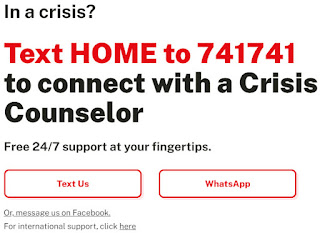Many psychology majors in your I/O course have clinical/counseling aspirations. This is great: They will probably still work within an organization, and I/O certainly intersects with clinical/counseling (stress, well-being), so there is a lot they can gain from I/O.
However, why not get them to buy into the course even more by demonstrating how data is used to determine training needs in mental health care? This is a small example, but one you could use to introduce the idea of training assessment.
Crisis Text Hotline is a 24/7 texting service that provides mental health resources. I share their number with my students in my syllabus because who knows when they need help. Maybe you should, too? Also, CTH is a tremendous mental health volunteer opportunity that anyone with a phone can perform! Volunteers receive extensive training and select the hours when they accept texts. This might be a good fit for your busy students or students hesitant to perform face-to-face volunteer work during COVID.
CTH shares their data: You can sort it by state, by type of mental health crisis, etc. I shared this information over on my stats blog and some ideas for using the data in Psych Stats.
That's excellent descriptive data about user trends, but I'm more interested in how CTH uses its data internally to inform training for this blog post.
CTH shares internal data, how they use it and invite collaboration.
 |





No comments:
Post a Comment